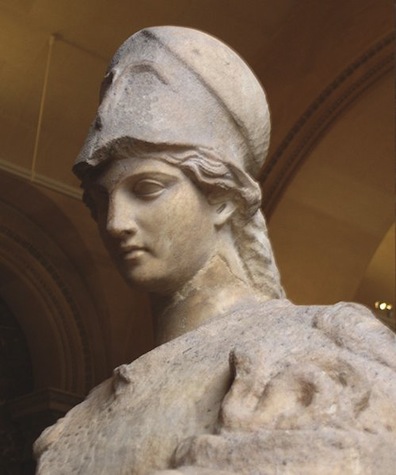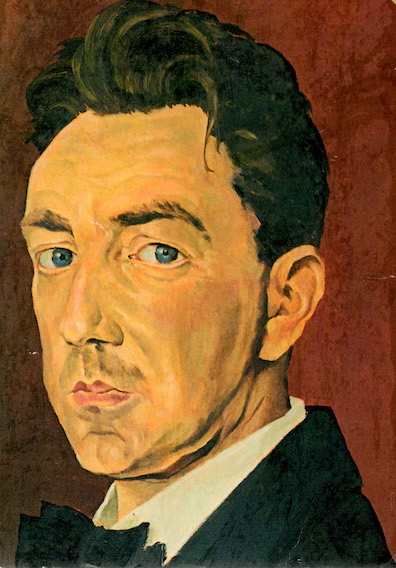Mulligan's "great searching eyes" are the first of many that
one becomes aware of in reading Ulysses. In this novel
characters' eyes frequently convey information about their
minds, and none more so than Mulligan's.
In Telemachus, Mulligan has "great searching eyes,"
"mobile eyes." Stephen's decision to disclose his grievance
against Mulligan stirs "silver points of anxiety in his eyes."
When he is clowning, his eyes blink "pleasantly"; they lose
all evidence of "shrewd sense," "blinking with mad gaiety."
But Stephen sees the shrewd sense, and he discerns Mulligan's
intention to claim the key:
"He will ask for it. That was in his eyes." He sees things in
Haines' eyes as well: their "wondering unsteady" quality when
he begins declaiming Irish
to the old milkwoman; the "firm and prudent" quality they
display as the Englishman looks out on the sea, his nation's dominion;
the fact that, despite Stephen's wish to dislike the stranger, "the cold
gaze which had measured him was not all unkind." (In Nestor,
Stephen recalls that Haines' eyes were "unhating.")
§ Some
textual controversy attends the first of these glimpses of a
character's eyes. Gabler’s edition replaces “great
searching eyes” with “grey searching eyes.” It is hard
to prefer this change on aesthetic grounds. Losing the
suggestion of intellectual spaciousness, "grey" gains in
return only a possible symbolic suggestion that, as Gifford
notes, Buck Mulligan may be similar to Athena, because she is
called the “grey-eyed goddess” throughout the Odyssey.
But this correspondence is built on shaky ground. The word
sometimes translated as “grey-eyed” in English versions of the
Odyssey, glaukopis, more properly means
“with gleaming eyes.” Even if one supposes that Joyce intended
a comparison between Mulligan and Athena, it is hard to make
sense of it. Why would he cast Mulligan both as Stephen's Antinous-like antagonist and as
his beneficent protector?
Gabler's emendation appears not only pointless but also
highly arbitrary if one takes account of the fact that
Mulligan's model, Oliver St
John Gogarty, had strikingly blue eyes. Here is
Gogarty's biographer Ulick O'Connor: "The eyes are striking,
vivid blue, so deep in colour that his daughter actually
remembers their being a shade of violet at times. His hair is
brown, but sometimes streaked with gold from the bleaching of
the sun, and inclinced to stand upright when brushed sideways"
(20). Joyce captured the mix of hair colors in his fifth
paragraph by describing Mulligan's hair as "grained and hued
like pale oak." Why would he have chosen to change the vivid
blue eyes to a duller hue? In fact, he did not. Mulligan's
eyes are described later in Telemachus as "smokeblue"—greyish,
perhaps, but hardly grey. This is one of a distressingly large
number of instances in which Gabler's efforts to produce a
"corrected text" introduced new and totally unnecessary
errors.

